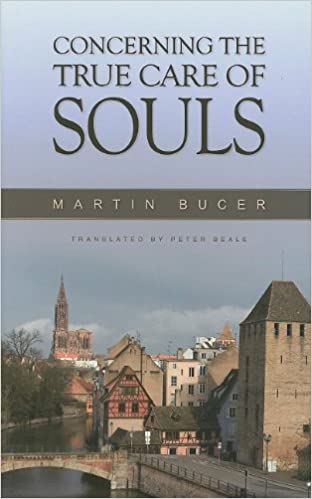In this Calvin anniversary year it is good to be made aware of some of the lesser known leaders of the Reformation. Martin Bucer was one such and indeed was highly regarded by Calvin. We are grateful for this translation from the original German by Peter Beale, being but a tiny portion of Bucer’s writings which are in the process of being republished. The English is a little convoluted in places as the translator admits, but it is still an easy read.
The work is an exposition of Ezekiel 34:16, which follows a lengthy discussion of the nature of the church and the pastoral care of its members, as exercised by Christ through under-shepherds. It is evident that it was written against the background of conflict with Rome and some parts may seem a little strange to those of us in ecclesiastical independency.
This is particularly true of the relationship between the church and the state where Bucer maintains that the magistrates are to deal with heresy. Readers will also need to be careful not to misunderstand what Bucer means by ‘penance’.
In his treatment of the text, the ‘lost’ sheep are those baptised infants who fail to come to personal faith. The ‘strays’ are those who once were part of the church but have defected. Both these groups are to be earnestly and compassionately sought or restored. By contrast the ‘hurt and wounded’ are to be lovingly but firmly disciplined. They are those who fall into ‘open and notorious sins and abuses’. Certainly such need to be helped pastorally, but not every reader of Ezekiel today would necessarily understand the biblical terms to describe this sort of person. The ‘weak’ and the ‘healthy’ of the text are self-explanatory.
There is an element of disproportion in the treatment of the text. The lost, strays and weak, get a mere 27 pages altogether and the healthy get 24. However those in need of discipline according to Bucer are covered by 65 pages. That plainly reflects the background of his times and where he saw the most acute need.
Most of those for whom he wrote were ‘churched’ in one way or another. It is very different for us, but nevertheless a healthy exercise of church discipline does need to be recovered and perhaps that is the greatest challenge of this book.







